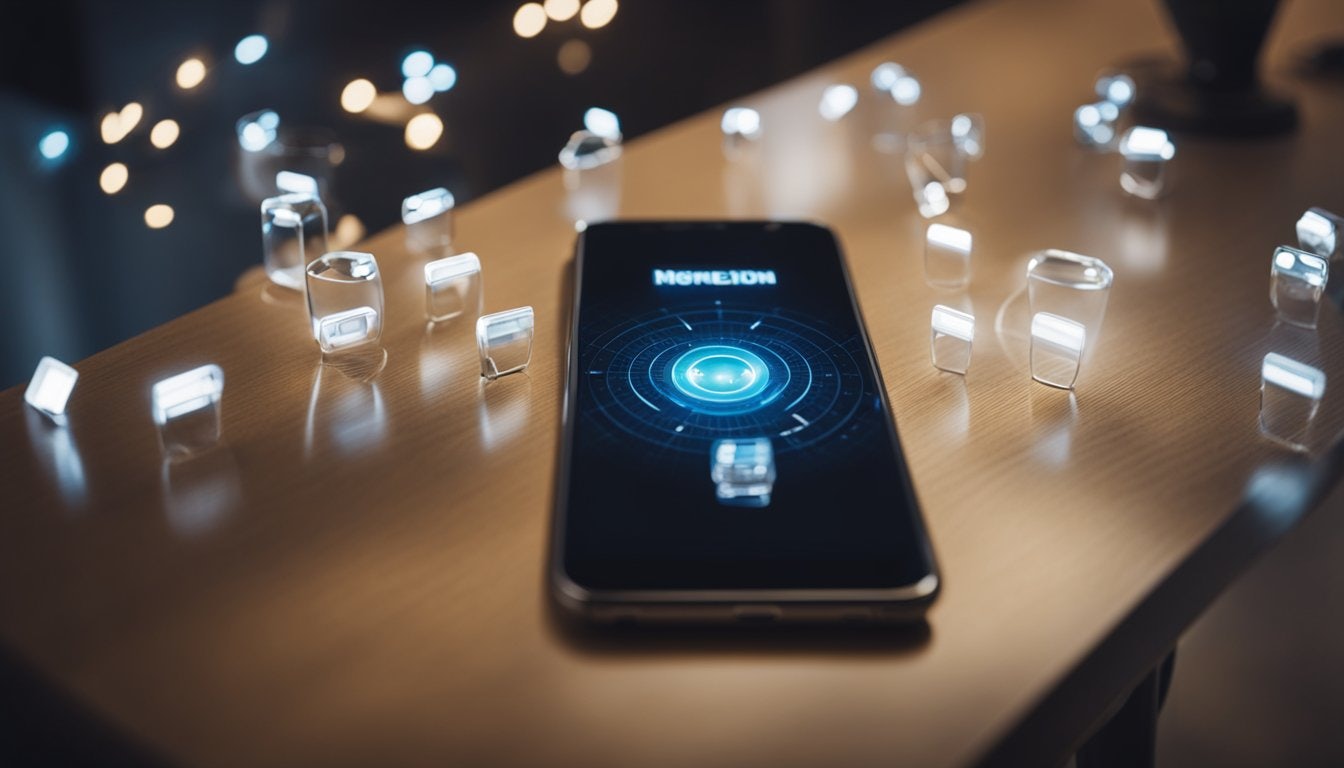
9 Bad Smartphone Habits That Could Cost You: Break the Cycle Now!
Smartphones! They've become such an integral part of daily life, haven't they? With their glossy screens and endless apps, they promise a world of convenience right at your fingertips. But with great power comes great responsibility. You might be surprised to find out that some of your routine smartphone habits could be setting you up for unnecessary costs, or worse, endangering your personal information.
Your phone is your trusty sidekick, helping you navigate the day—from streaming your favorite tunes to capturing life's spontaneous moments. However, without proper care, this digital companion could quickly turn into a costly burden. A cracked screen from a single drop can lead to an expensive fix, while leaving your Bluetooth on all day might deplete your battery life faster than you can say 'low power mode'.
Maintaining your smartphone's longevity isn't just about being careful; it's about being smart with how you use it. Overlooking app permissions could give advertisers free rein over your data, and neglecting software updates may leave your device vulnerable to security breaches. Understanding and tweaking these habits can protect both your wallet and your privacy. Excited to learn more? Stay tuned to discover the nine bad smartphone habits that you should definitely avoid!
Ignoring Software Updates
Smartphone manufacturers regularly release software updates that can significantly improve your device's performance and security. Consistently applying these updates ensures that your smartphone operates efficiently and remains protected against the latest cyber threats.
Security Risks
- Outdated security: Ignoring updates leaves your phone vulnerable to malware and hackers. Updated software often includes patches for security holes that, if left unpatched, can be exploited by cybercriminals.
| Update Status | Potential Risks |
|-------------------|-------------------------------------|
| Not Updated | Increased risk of data breaches |
| Updated | Reduced likelihood of cyber attacks |
- Personal data at risk: Your private information, such as banking info, passwords, and personal photos, could become accessible to unauthorized users if your security isn't up to date.
Missed Feature Enhancements
- Performance boosts: Regular updates can provide your phone with speed improvements and battery life optimization, ensuring that your device runs smoother for longer.
- Enhanced usability: New features or enhancements in updates can improve the overall user experience, making navigation and accessibility easier for you.
- Advanced settings: Updates often include new customization options that allow you to tailor your smartphone's functionality to better suit your personal preferences.
Overheating And Overcharging
Exposing your smartphone to excessive heat and prolonged charging can compromise its performance and longevity. Here's what you need to understand about the risks and how to protect your device.
Battery Degradation
When you expose your phone to high temperatures or leave it plugged in for too long, the battery suffers. Heat accelerates chemical reactions inside the battery, reducing its capacity over time. If you notice your phone doesn't hold a charge as it used to, it might be a sign of battery wear. Avoid overcharging by unplugging your device once it reaches 100%. To visualize the impact:
- Normal Battery Wear: 2-3% capacity loss per year
- Excessive Heat/Charge: Up to 20% capacity loss per year
Potential Safety Hazards
Overheating and overcharging don't just affect battery life; they also pose safety risks. Devices can reach dangerously high temperatures, which may lead to thermal runaway – a situation where the battery essentially overheats to the point of catching fire or even exploding. Keep your phone in a cool environment and never cover it while charging. Here's what to watch out for:
- Tell-tale signs: Hot to the touch, swelling, or leaking
- Immediate actions: Unplug and turn off the phone, move it to a safe place
Exposure To Malware Via Apps
Downloading apps can seem like a harmless way to enhance your smartphone experience, but it's also a common avenue for malware to infiltrate your device. Stay vigilant and informed to protect your investment.
Unauthorized Data Access
What Happens: Untrustworthy apps can gain access to your personal information without permission.
- Contacts: Malicious apps may harvest your contacts list, leading to spam or phishing attacks.
- Messages: Sensitive texts could be read and exploited for fraud.
Your Action Steps:
- Review Permissions: Always check app permissions during installation.
- Monitor Updates: Watch for changes in permissions with each update.
System Performance Issues
Signs of Compromise:
- Battery Drain: Malware can run unnoticed in the background, causing your battery to deplete faster.
- Sluggishness: Your smartphone's operations may slow down due to malware burdening the system resources.
Preventive Measures:
- Install a Reliable Antivirus App: Protect your phone in real-time.
- Regular Scans: Conduct frequent antivirus scans to detect and remove threats.
Screen Time Excess
Excessive screen time on your smartphone can have surprisingly negative effects on key areas of your life, particularly your sleep and daily productivity.
Impact On Sleep
-
Disrupted Sleep Patterns: The blue light emitted by smartphone screens inhibits the production of melatonin, the hormone responsible for sleep regulation. If you're scrolling late into the night, you might find falling asleep more challenging.
Before Bed Activity Potential Impact on Sleep Social Media Browsing Increases alertness, reduces sleep quality Watching Videos Keeps brain engaged, delays sleep onset Reading on Screen Prolongs exposure to blue light, disrupts sleep cycle -
Tips for Better Sleep:
- Establish a screen-free routine 1 hour before bed.
- Use night mode settings to reduce blue light exposure.
Reduced Productivity
-
Frequent Interruptions: Every notification buzz pulls your attention away from tasks, causing you to lose focus and momentum. In fact, studies show it takes on average 23 minutes to refocus after an interruption.
Task Time to Refocus After Interruption Work Project 23 minutes Reading Up to 25 minutes Creative Work Can exceed 30 minutes -
Strategies to Enhance Productivity:
- Turn off non-essential notifications.
- Designate specific times to check your phone.
